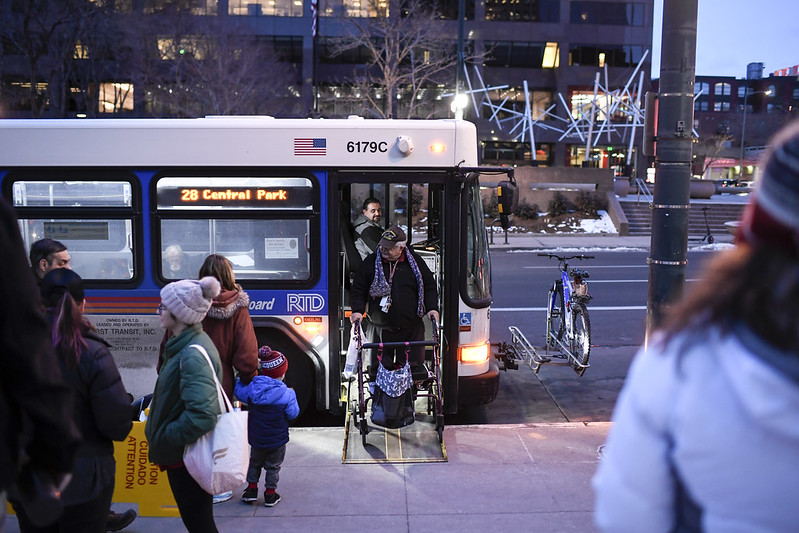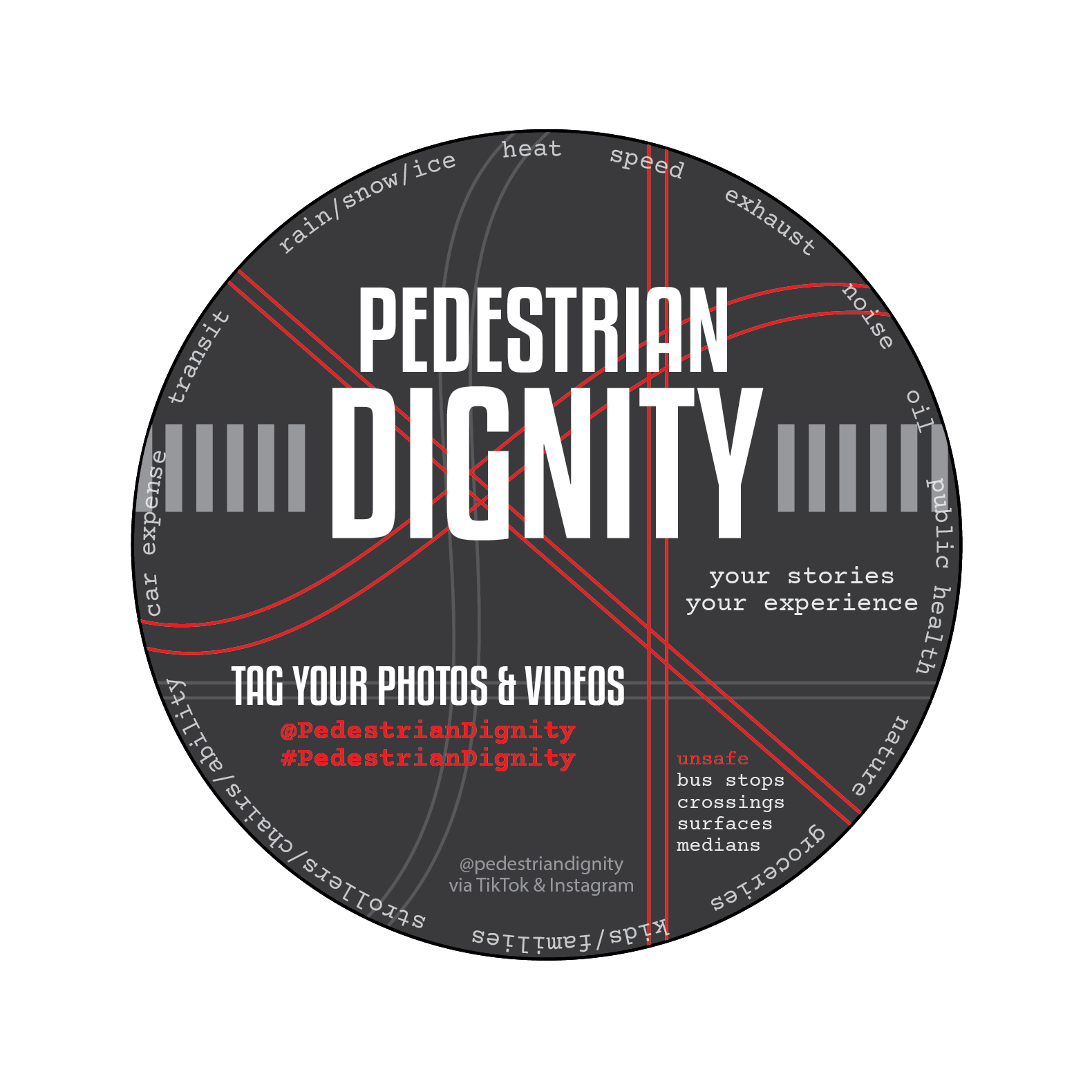
Join us for National Week Without Driving
October 2–8, 2023 Pledge as a community memberPledge as a public leader
What if you couldn’t drive?
What if taking the bus, riding a bike, walking, rolling in a wheelchair, or asking for rides wasn’t a choice you could make, but a necessity?
What would it be like trying to get to your job, the grocery store, your kids’ school, medical appointments, and other essential destinations without the option to drive yourself?
For people who can drive, and afford the increasing costs of car ownership, these aren’t questions that come to mind often. But for people living with a disability, young people, older adults, and those who can’t afford a personal automobile or gas, this is their everyday experience. We encourage you to listen to just some of the experiences of non-drivers, and the barriers they face, in the short video below:
What’s the impact of driving?
Transportation and housing are the largest expenses for Denver families, and these costs are intertwined. Assuming cars as the default mode of transportation leads to land use decisions that encourage urban sprawl—rather than dense communities near jobs and services—which leaves more people dependent on driving than our city and our climate can sustain. A combination of more driving, larger vehicles, unsafe street design, and a cultural attitude that prioritizes movement by car has led to an increase in traffic fatalities in Denver and even across the state in recent years. Traffic crash fatalities disproportionately affect Black, Indigenous, and People of Color (BIPOC), and “people living in lower-income areas are less likely to have access to safe walking and biking facilities” (report by NHTSA, page 5). The City of Denver needs more momentum to prioritize the needs of people who walk, roll, bike, and take transit in order to meet its climate and sustainability goals—and because the dignity of all people, no matter how they get around, matters.
How do we make a difference?
We’re calling on people who live, work, and play in Denver—community members and public officials alike—to participate in National Week Without Driving, October 2–8, to learn what it’s like to get around without driving. Take the challenge in solidarity with our neighbors who can’t rely on driving to go about their lives but still deserve a dignified and safe transportation experience. Join us in the joys and frustrations of a week without driving!
We know you may not have experienced what it’s like to get around without driving before. Since we all have places we want and need to go, and since we all share our roads and other public spaces, we’re just asking you to learn with us.
How do I participate?
Take the pledge
Complete the challenge
- Don’t drive yourself! This applies to all of your activities—not just your work commute. If you normally transport family or friends, it applies to those trips too.
- Others may drive you, but make a note of these trips. If you ask someone for a ride, do you “owe” them for their time? Do you feel obligated to support them in other ways (e.g., doing the dishes)? If you ride-hail or use a taxi, think about how the cost would impact your decision to take that trip if it were your only option in a normal week.
- Use our NWWD Resources to prepare for the challenge and guide your experience in Denver October 2–8.
- Take time to reflect on your experience.
- This isn’t a disability simulation or a test to see how easily you can find alternatives. We know it’s far easier to give up your keys if you can afford to live in a walkable area that is well-served by transit, or if you can outsource your driving and other transportation and delivery needs to others.
- Having to drive during the challenge does not signify failure! The point is to consider how someone without the option to drive would cope and what choices they might make.
Attend events
We’re hosting three events during National Week Without Driving, October 2–8:
- Webinar: Preparing for Your Week Without Driving: Thursday, September 28, 6 p.m. via Zoom
Hop on Zoom for guidance on how to prepare for your Week Without Driving, with a step-by-step walk-through of helpful resources and a Q&A with our partners who get around Denver without driving every day. - Youth Mobility Justice Gathering: Wednesday, October 4, 4–6 p.m. at Highland Park (3265 Federal Blvd) behind Woodbury Branch Library, near the courts
Learn how to get more involved in making Denver safer and more accessible for people outside of cars, learn advocacy tips and strategies, and meet other mobility justice advocates. Food will be provided. This event offers a $50 stipend to participating youth and registration is limited to 20, so get in there! - Film Screening & Panel Discussion: Saturday, October 7, 1–4 p.m. at the Sie FilmCenter (2510 E Colfax Ave)
Come out for a screening of The Street Project, a documentary that chronicles the citizen-led fight to make streets and communities safer amid increasing pedestrian and bicyclist fatalities. Following the film screening, there will be a panel discussion on the City of Denver’s progress toward Vision Zero.
Additionally, check out more NWWD events throughout the week:
- A Conversation with Henry Grabar: Friday, October 6, 4–6:30 p.m. at the CU Denver College of Planning (1250 14th St), second floor
Join the discussion on Grabar’s new book, Paved Paradise: How Parking Explains the World, hosted by YIMBY Denver.
Spread the word
Share this page with your friends and family and invite them to join you for a #WeekWithoutDriving! The more people learn and participate, the more awareness we build together for more accessible transportation and safer streets in Denver.
How did this initiative get started?
In 2020, Disability Mobility Initiative began documenting the experiences of non-drivers in the State of Washington. In 2021 and 2022, public officials in Washington state participated in a Week Without Driving. They found the experience incredibly valuable. In 2023, Disability Mobility Initiative, America Walks, Access Living, and Front and Centered convened the National Coalition for a National Week Without Driving.



